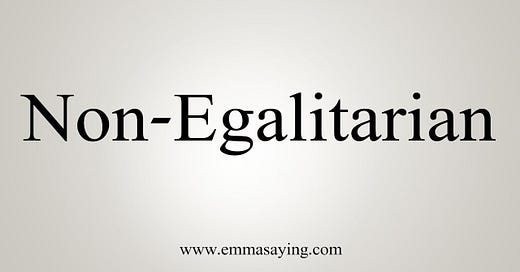Article is linked here.
Huemer starts saying
I start from three premises, roughly as follows: (1) that if possible world x is better than world y for every individual who exists in either world, then x is better than y; (2) that if x has a higher average utility, a higher total utility, and no more inequality than y, then x is better than y; (3) that better than is transitive. From these premises, it follows that equality lacks intrinsic value, and that benefits given to the worse-off contribute no more to the world’s value than equal-sized benefits given to the better-off.
He does bare this out.
A) Consider a world of 1 million people with 101 utility. Compare it to one with 2 million people with 50 utility. World 1 is better if we accept that having a higher average utility, total utility, and no more equality than world 2 makes it better than world 1. This follows from every plausible moral view. A world twice as populated with less than half as much welfare per person would be worse.
B) Compare world 1 to world 3. World 3 has 1 million people with 102 utility and 1 million people with 1 utility. World 3 is better given that it’s better for every single person. All the 1 million people have higher utility in world 3, and there are an extra million people with overall positive lives. World 3 is better for all individuals who exist in either world, so it’s better overall.
C) This means that w(3)>w(1)>w(2). This mean that by transitivity, w(3)>w(1). Thus, 1 million people with 102 utility and 1 million people with 1 utility is an overall better state of the world than 2 million people with 50 utility.
Read the paper for more information. Any objections?



